
Pakistan to Purchase 1.2m Doses of COVID19 Vaccine From China’s Sinopharm
Federal Minister for Science and Technology Fawad Chaudhry has said the cabinet committee decided to initially purchase 1.2 million doses of the Covid-19 vaccine from the Chinese company Sinopharm.
Will the Coronavirus Vaccine be Free in Pakistan?
This is a piece of relieving news for the people of Pakistan the purchased vaccine doses will be provided free of charge to the frontline workers in the first quarter of 2021. Fawad Chaudhry took to his social media (Twitter) and wrote on Thursday.
The federal minister also released the statement that the private sector is allowed to import any internationally approved vaccine on its own.
The committee was informed that a number of countries have pre-booked Covid-19 vaccine based on preliminary or incomplete results in order to ensure the timely availability of vaccines for their populations. In some situations, vaccines were also pre-booked even in developing stages. Furthermore, the deliberations of an expert committee formed by DRAP is in process of reviewing and analyzing available data from recent successful clinical studies performed so far. Out of available options, data from one company has been submitted for review to the committee for a final adjudication for the emergency use of the vaccine.
The meeting was chaired by Minister for Planning Asad Umar and attended by Minister for Science and Technology Fawad Chaudhry and Minister for Industries Hammad Azhar. The Special Assistant to PM on Poverty Alleviation Dr. Sania Nishtar and SAPM on Health Dr. Faisal Sultan attended the meeting on the invitation.
Previously on Wednesday, Federal Planning Minister and NCOC Chief Asad Umar also tweeted, “Authorized procurement of more than 1 million vaccines which will cover all frontline health workers, as soon as DRAP expert committee approves vaccine.”
According to Fawad Chaudhry, the 1.2m doses purchase would be of the vaccine candidate developed by Sinopharm’s Beijing Institute of Biological Products. The Chinese firm Sinopharm has another candidate, developed by the Wuhan Institute of Biological Products, which is also in phase III trials.
Pakistan earlier this month approved $150 million to buy COVID-19 vaccines, initially to cover the most vulnerable 5% of the Pakistani population, but still has not announced which one it would procure, the officials might be tapping more than one source for the procurement of the vaccines.
The vaccine has already been rolled out in the UAE and Bahrain. The UAE began emergency use on September 14th and approved the vaccine for full use on December 6. Bahrain began inoculating health workers on December 13.
With Pakistan registers its first cases with the Coronavirus mutant, the reliability of the vaccine has increased. The news of the Coronavirus variant coming to Pakistan is concerning because, according to a study by the Centre for Mathematical Modelling of Infectious Diseases at the London School of Hygiene and Tropical Medicine in the UK that, “The increase in transmissibility [of new variant] is likely to lead to a large increase in incidence, with Covid-19 hospitalizations and deaths projected to reach higher levels in 2021 than were observed in 2020, even if regional tiered restrictions implemented before 19 December are maintained,” said researchers.
The World Health Organisation also tweeted earlier this month that it was “in close contact with UK officials on the new #COVID19 virus variant” and promised to update governments and the public as more is learned. The new variant was first detected in early September 2020. Around November 2020 with a few cases emerged in London having the new variant. This reached nearly two-thirds of cases in mid-December. The variance came to dominance with the testing results in some centers.
Covid-19 Stats in Pakistan Currently
Pakistan on Thursday reported 58 Covid-19 related deaths during the last 24 hours, taking the country’s total death toll to 10,105. According to the NCOC, most deaths were reported in Punjab, followed by Sindh. The NCOC added that 31 Covid-19 patients died on the ventilator during the last 24 hours.
In Sindh, the ratio of total reported deaths is 3533, out of 10,105 in total. The ratio of deaths in total for Punjab is 4,013. 1,638 in Khyber Pakhtun Khwa and 416 in Islamabad. Around 183 deaths had been reported in Balochistan and 101 deaths in Gilgit Baltistan and 221 in AJK.
According to the NCOC report, about 4,960 patients had recovered from the deadly pandemic in the last 24 hours taking total recoveries to 435,073. The NCOC also reported that a total of 6,696,068 tests had been conducted since the outbreak of the virus. There are about 626 hospitals with Covid-19 facilities with 2,691 patients admitted across the country.
This time the virus is much stronger and more transmissible, public service campaigns have started to emerge more than ever, to wear the mask, because the availability of the vaccine will not be for everyone in the initial phases. The protection with mask and sanitizer should be the topmost priority for everyone!

Pakistan Registers New Coronavirus Strain From The UK!
With the extreme new rise and mutation of Coronavirus, Pakistan on Tuesday also has reported its first confirmed cases of a new Covid-19 strain detected in the United Kingdom earlier this year.
The New Coronavirus Variant in Pakistan
According to the Sindh health department, 12 samples of UK returnees were taken for genotyping out of which six were positive and three showed the new variant of the Covid virus in the first phase. The National Command and Operation Centre (NCOC) later released a statement, quoting that two more patients admitted to the National Institute of Health in Islamabad also showed the new variant.
https://twitframe.com/show?url=https://twitter.com/SindhHealthDpt/status/1343832560854556673The spokesperson for the Sindh Health Department Meeran Yousuf said, “The genotyping showed 95 per cent match of the new variant from the UK. These samples will go through another phase of genotyping,” For its part, the NCOC said that all the patients’ “results have to be confirmed through further analysis (whole genome sequencing) which will take a few more days to complete. “Meanwhile, the contact tracing of these patients is in process and their contacts are also being isolated,” Meeran added.
Increased Contractibility
The World Health Organisation tweeted earlier this month that it was “in close contact with UK officials on the new #COVID19 virus variant” and promised to update governments and the public as more is learned. The new variant was first detected in early September. Around November around a few cases emerged in London having the new variant. This reached nearly two-thirds of cases in mid-December. The variance came to dominance with the testing results in some centers. Milton Keynes Lighthouse Lab shared the graph in the relevance of the new variant spread in the country. WHO further showed the concern as, “What we understand is that it does have increased transmissibility, in terms of its ability to spread,” said Maria Van Kerkhove, WHO’s technical lead on Covid-19.
Viruses mutate regularly, and scientists have found thousands of different mutations among samples of the virus causing Covid-19. Many of these changes have no effect on how easily the virus spreads or how severe symptoms are. The new SARS-CoV-2 variant, later given the ID B.1.1.7, was first discovered in the United Kingdom and appears to spread faster than others, according to Science Magazine. Researchers believe it may have originated in an “immunocompromised patient” who had a long-running infection.
According to Science Magazine, genome sequencing of the new variant showed that the virus had accumulated a slew of mutations that together caused 17 amino acid changes in the virus’ proteins, eight of them in the crucial spike protein. These changes would help it evade the immune system and theoretically make it twice as infectious.
How serious it is in Pakistan?
News of the Coronavirus variant coming to Pakistan is concerning because, according to a study by the Centre for Mathematical Modelling of Infectious Diseases at the London School of Hygiene and Tropical Medicine in the UK that, “The increase in transmissibility [of new variant] is likely to lead to a large increase in incidence, with Covid-19 hospitalizations and deaths projected to reach higher levels in 2021 than were observed in 2020, even if regional tiered restrictions implemented before 19 December are maintained,” said researchers. The discovery of the new strain set off alarm bells worldwide just as more countries began vaccination campaigns to halt a pandemic that has claimed more than 1.7 million lives since it emerged a year ago in China.
The development of this new variant came while Pakistan is currently in the middle of the second wave of COVID-19. Pakistan reported the greatest number of deaths during the second wave and the second-highest since the beginning of the pandemic, with 111 people who die in the country on Thursday. The Ministry of National Health Services (NHS) stated that it was vigilant about the emergence of the new variant of SARS Cov-2 in Pakistan. However, a Special Health Assistant (SAPM) on Dr. Faisal Sultan admitted that the situation in the Pakistan health sector was a dark image. He stated that the situation was the “worst” compared to other countries in South Asia.
In its statement issued on Tuesday evening, the NCOC said that the government had already taken a number of steps to respond to the development. “On December 21, the NCOC decided to limit and restrict travel from the UK to Pakistan only to certain categories of travelers and only under strict protocols that mandated a negative PCR test before the flight, a PCR test upon arrival in Pakistan and quarantine as prescribed by the authorities.
“Moreover, track, trace, and quarantine were also initiated for passengers who had arrived from the UK as far as 7 days before the announcement of these travel restrictions. These measures are in place until Jan 4.”
The declaration added that samples of traveled patients from the United Kingdom and have been tested positive were also evaluated in some laboratories of the presence of the new variant. The detection of the variant in the five patients has been made possible thanks to these efforts, added.
READ MORE: EVERYTHING TO KNOW ABOUT COVID-19 VACCINE AND ITS SIDE EFFECTS!

Health To Take On Front Line Of Cyber-Security in 2021 With COVID-19
Covid-19 has nearly taken an entire year with its horrors and much more, the generation has seen the worst pandemic after years and now threats from different nation-states and criminals to the health system are a growing concern worldwide as drastic changes in the real world have major impacts on the advancement of the cybersecurity in the health landscape.
The huge logistical challenges of rolling out vaccines face the risk of disruption to complex supply chains. Criminal ransomware poses a threat at a time when the pandemic has increased our reliance on technology.
Supply Chain
The Coronavirus vaccine distribution has begun and may bring help to many people but also brings a big challenge. Despite having the vaccine’s side effects on its own. No one knows that it can relate to cybersecurity in the past. Complex global supply chains for vaccines range from factories in one country to refrigerators connected to the Internet. This will eventually create new pressure on doctor’s operations, IT systems, and sometimes small providers play an important role.
IBM has said it has seen alleged state hackers targeting “cold chains” which are used to maintain inventory at the right temperature during the vaccine transportation. And in England, the national cybersecurity center, which worked quickly when the pandemic began securing vaccine research since then claimed its efforts on the vaccine distribution.
At least a large pharmaceutical company is no stranger to cyber espionage. Their security official said they first began to think hard about this problem after a large espionage campaign back in the spring of 2010. But the problems around the pandemic have changed the interests of this sector, especially in cybersecurity.
The problem is now at a bigger stage. In July, England accused Russian intelligence to target research, including for Oxford vaccines, while the US accused the hacking-per similar role of China. Tonya Ugoretz, the FBI also told the Aspen Cyber Summit recently said that this “could be a reason to try to steal intellectual property for financial purposes.” He also added that “it can damage trust … or to benefit the development of other countries. We see the enemies of our countries most determined not only rely on one method to target the supply chain but combine cyber by using more traditional espionage and sources Humans. ” Read: SLEEP APNEA PATIENTS COULD BE AT ADDITIONAL RISK WITH COVID-19
The emergence of “vaccine nationalism” has led intelligence and security officers to ask questions about whether other countries can try and damage other people’s efforts in the future. One tactic that is widely discussed is the dissemination of deliberate information online about vaccination, or questioning the record of safety and testing a country.
The 77th British Brites have supported the investigation of the cabinet office about whether foreign countries encourage anti-vaccine worries in the UK.
Cyber-Blackmail Campaigns
Experts say despite having worries about countries that ransomware criminals – threats remain persistent that their data and computers will be locked unless they pay.
It was seen during the start of the Pandemic that from the beginning of the pandemic that the criminal gang would not target health, but it could not survive and some attacks occurred.
Recent reports from a positive technology security company also said that almost half of all the virtual world attacks on health services were Ransomware in the July-to-September-September-September quarter of 2020. US hospitals have been worse hit than in the UK. It is estimated that because criminals see them as richer than their NHS colleagues. In just 24 hours in October, six American hospitals received a pledge of a minimum of $ 1 million (£ 810,000), which leads to some cancer treatment canceled, this is a worrying threat to security. And compromise the health sector at a very large level.
“The health care sector has become a large, rich, juicy target,” Greg Garcia, executive director for US Cybersecurity from the Health Sector Coordination Board, recently said.
“As if they moved from the financial services sector.” The UK has paced to improve weakness in the NHS system exposed by Wannacry Ransomware 2017 attacks. Even so, there is a concern that can be beaten again.
Former doctor NHS said Abed had long warned about the security risk of health so that such an attack could kill patients. He further said, “The thing that really concerns is that the attacker now understands the concept of clinical urgency.” In addition, “they understand if we create risks that interfere with the ability to provide patient care, we are more likely to get payments.” The concern is that the pandemic has accelerated the digitization of health.
It has brought benefits such as online consultation, Dr. Saif shows concern that the investment needed to maintain the system and the internet-connected device is still safe not to run. But he said the greater risk is the fact that more devices are connected together while remaining vulnerable, which leads to the risk of domino effects.
The biggest concern is that criminals moved from only locking organizations from their health data to start damage it can pose extreme risks for their patients and security because the desire to curb the coronavirus outbreak can also expose or leak broader data. It can also lead health to be the first priority in cybersecurity in 2021.
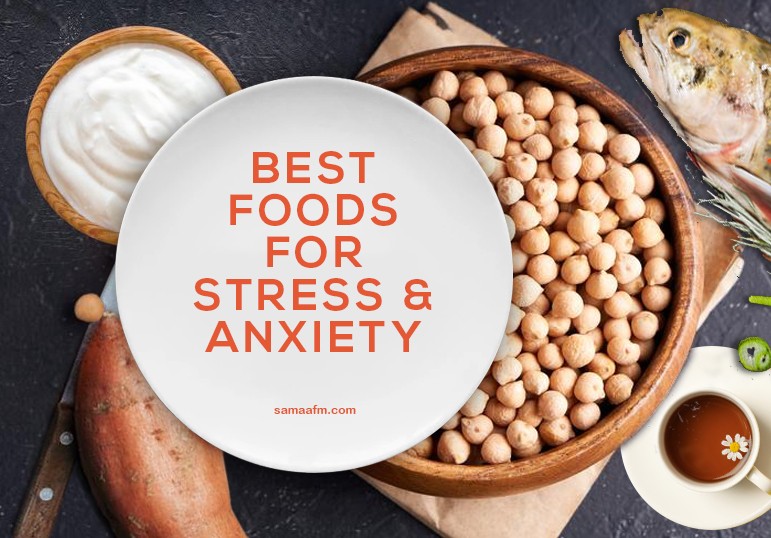
Foods That Relieve Your Anxiety And Stress
Anxiety is a common state of mind but it is a normal and often healthy emotion. It involves excessive nervousness, fear, apprehension, and extreme worry. And if stress adds up to it, it can disturb the mental state pretty quickly. Both anxiety and stress are interrelated to each other Anxiety is basically your body’s natural reaction to stress.
Sometimes people think the answer to their anxiety is more panic and more worry. But that is not true. Most people have different coping mechanisms for anxiety and stress. Some people find comfort in eating food, without knowing the consequences on their bodies. But a good and balanced lifestyle change can be useful to help manage anxiety and stress. Eating a diet high in vegetables, fruit, legumes, whole grains, and lean protein can be helpful. Let’s discuss some of the foods which will bring your health game up and calm your anxiety!
Chickpeas
Loaded with stress-fighting vitamins and minerals, including magnesium, potassium, B vitamins, zinc, selenium, manganese, and copper Chickpeas is one delicious dish! These legumes are also rich in L-tryptophan, which helps produce mood-boosting neurotransmitters. Research also shows that plants rich in protein may help but chickpeas can also boost your mental health and improve brain performance. According to various studies, those who tend to follow a strict Mediterranean diet rich in plant foods like legumes experienced better mood and less stress than those who followed a typical Western diet rich in processed foods.
Chamomile Tea
Chamomile, a common daisy-like plant, commonly used for herbal infusions for traditional medicine, and there is some evidence that chamomile has an effect on health. It is a medicinal herb that has been used since ancient times as a natural anxiety reducer. Its tea and extract have been shown to encourage restful sleep and reduce symptoms of anxiety and depression.
Sweet Potatoes
Nutrient-rich carb sources such as sweet potatoes are one of the most important food items that help lower levels of the stress hormone cortisol. Chronic stress and anxiety can lead to Cortisol dysfunction which in some cases cause pain and other inflammatory effects on the human body. Sweet potatoes are a whole food that contains vitamin C and potassium which acts greatly on stress.
Eggs
Eggs are often considered as nature’s multivitamin as it is an impressive nutrient profile. They are loaded with good vitamins, minerals, amino acids, and antioxidants needed for a healthy stress/anxiety response. Researches show that whole eggs are particularly rich in choline, a nutrient found in large amounts in only a few foods. Choline has been shown to play an important role in brain health and may protect against stress.
Parsley
Parsley or garden parsley is native to the central and eastern Mediterranean region and cultivated as a herb. It is packed with antioxidants, the compounds that neutralize unstable free radicals and protect against oxidative stress. Parsley is specifically rich in powerful antioxidants like flavonoids, carotenoids, and volatile oils. These antioxidants help soothe stress and anxiety.
Garlic
Garlic, a vegetable with sulfur compounds that help increase levels of glutathione. Glutathione is an antioxidant that acts as a part of your body’s defense against stress. Garlic also helps combat stress and reduce symptoms of anxiety and depression.
Dark Chocolate
According to experts, dark chocolate can help reduce stress and anxiety. A 2014 study found that 40g of dark chocolate helped reduce perceived stress in female students. Study proves that dark chocolate or cocoa may improve mood. Dark chocolate is a rich source of polyphenols, especially flavonoids. One study suggested that flavonoids might reduce neuroinflammation and cell death in the brain as well as improve blood flow. Dark chocolate is also a good source of magnesium. Eating a diet with enough magnesium in it or taking supplements may reduce symptoms of depression.
Yogurt
Yogurt contains healthy bacterias, Lactobacillus, and Bifidobacteria. Some of the emerging evidence proves quotes that these bacterias and fermented products have positive effects on brain health. Yogurt and other dairy products may also produce an anti-inflammatory effect in the body. Some research suggests that chronic inflammation may be partly responsible for anxiety, stress, and specifically depression. A study from 2015 suggests that fermented foods reduce social anxiety in some young people, while multiple studies found consuming healthful bacteria increased happiness in some people.
Fatty fish
Omega-3 is a fatty acid that has a strong relationship with cognitive function as well as mental health and fish including salmon, mackerel, sardines, trout, and herring, are high in omega-3. Though, somehow it is also advised that consuming a lot of these fish with omega-6 may increase their risk of anxiety, so moderation is the key. Recent recommendations suggest that eating at least two servings of fatty fish a week. EPA and DHA regulate neurotransmitters, reduce inflammation, and promote healthy brain function.
Incorporating these foods in your daily diet can help people with anxiety and depression on many levels. Most importantly, if you eat everything in moderation, you can feel your body healthier and less stressed! Happy eating!
READ MORE: SUPPLEMENTS WILL NEVER REPLACE REAL FOOD! – NUTRITIONIST MUDESER ALI
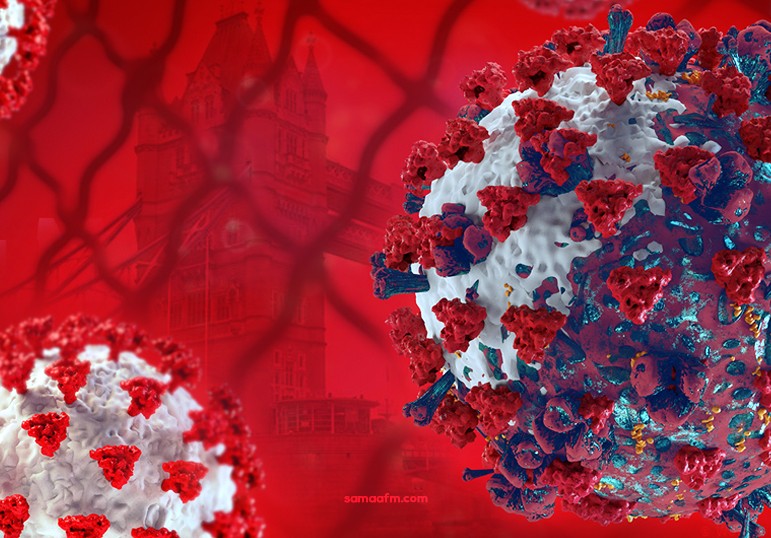
Coronavirus is Mutating: What Should We Know?
Just as vaccines begin to raise hopes for a path out of this deadly pandemic, coronavirus has started mutating Britain officials have ringed an urgent alarm this past weekend about what they called a highly contagious new variant of Covid-19 circulating in England.
The UK has been under a strict lockdown since March. Prime Minister Boris Johnson said, “When the virus changes its method of attack, we must change our method of defense.”
Despite the vaccine introduced by Pfizer and BioNTech and to be first tested and distributed in the UK, the new variant and Coronavirus mutation is raising questions!
What is the concern of this new Coronavirus variant mutation?
Three of the major elements that are coming together and becoming an attraction for this variant, that it is rapidly replacing other versions of the virus. It has mutations that affect the part of the virus likely to be important. And some of those mutations have already been shown in the lab to increase the ability of the virus to infect human cells.
All of these come together and make the virus even more spreadable, more easily.
Though scientists are worried about these variants but not surprised by them. Researchers have gathered thousands of tiny modifications in the genetic material of the Coronavirus as it has spread across the world.
A similar version of the virus has emerged in South Africa, sharing one of the mutations seen in the British variant, according to scientists who detected it. That virus has been found in up to 90 percent of the samples whose genetic sequences have been analyzed in South Africa since mid-November.
Train stations in London filled with crowds of people hustling to leave the city as the restrictions went into effect. On Sunday, European countries began closing their borders to travelers from the United Kingdom, hoping to shut out the new redundancy of the pathogen.
How fast is it spreading?
The new variant was first detected in early September. Around November around a few cases emerged in London having the new variant. This reached nearly two-thirds of cases in mid-December. The variance came to dominance with the testing results in some centers. Milton Keynes Lighthouse Lab shared the graph in the relevance of the new variant spread in the country.
Numerous other mutations are circulating but are invisible to this PCR test. So genome sequencing of viral samples is very important. Reportedly there is a correlation between the new variant and increased infectivity, but that is not known to extend to more severe symptoms.
Protection from this newly emerged variant, within the disease, or indeed any other, is to carefully and completely observe all advices for the prevention of the infection which includes masks, distance, hand hygiene, bubbles, travel restrictions, etc. READ: PFIZER AND BIONTECH VACCINE FOR COVID19 APPROVED IN UK FOR USE!
How much has it spread?
It is still unknown how this variant emerged, it is thought that either a patient in the UK has it or it had imported from a country with lower monitory services to detect the virus let alone to have a check on the mutations.
The variant can be found across the UK, focusing heavily in London, the South East, and eastern England. Cases elsewhere in the country do not seem to have recorded.
Nextstrain, which monitors the genetic codes of the virus samples around the globe, suggests that the variant might have come from Denmark and Australia.
There is still no need to panic as the technology used in the Pfizer-BioNTech and Moderna vaccines are now much easier to be adjusted accordingly and the pharma companies can update them than conventional vaccines. The new vaccines also generate a massive immune response in many patients, so COVID-19 may need many mutations over the years before the vaccines are tweaked. Keep your fingers crossed and stay safe!
READ MORE: EVERYTHING TO KNOW ABOUT COVID-19 VACCINE AND ITS SIDE EFFECTS!

Supplements Will Never Replace Real Food! – Nutritionist Mudeser Ali
Fitness and Nutrition are as important as your life, somehow they both are tied into an infinity loop. The better you eat the healthier you get. Not everyone follows a very healthy lifestyle but moderation is the key.
Mudeser Ali believes in a similar key, moderation, and counting blessings not food options to omit. While talking to Sara Baloch, he shared how important is for people, in general, to understand that only food can give you the basic amount of energy you need. Supplements will never replace real food.
Mudeser Ali is a Health Fitness Specialist with a demonstrated history of working in the Nutrition and fitness industry. He firmly believes that healthy eating habits will never make a person’s immunity weak! According to him improving sleeping habits is a game-changer. He also stressed that eating green leafy vegetables and adding variations in your salads can be a good step toward your goal weight! He also linked it with COVID-19 that how eating habits change immunity which ultimately leads to a better lifestyle.
Watch the full video and find out more health-related tips below
RJ Sara Baloch hosts Chill Karou, every Saturday and Sunday, 5:00 pm to 8:00pm
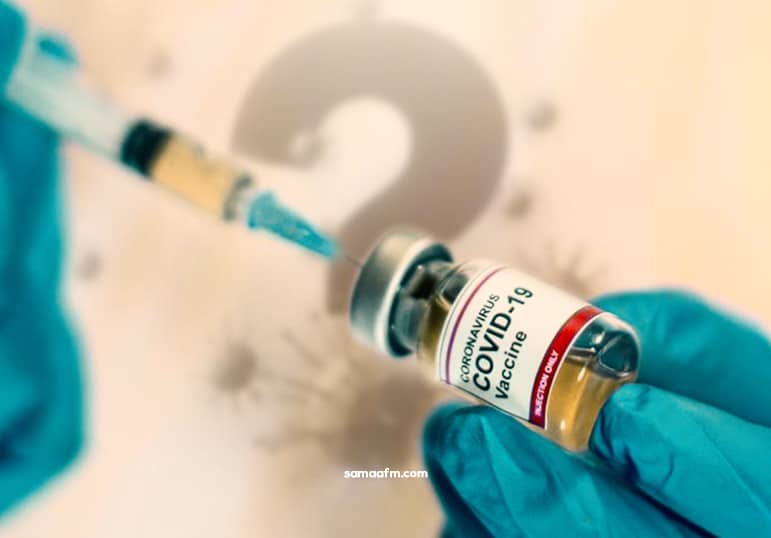
Covid-19 Vaccine and Its Side Effects – Everything you Should know
We thought 2020 was all about positivity and calmness and for the betterment in general. But it was all about chaos, havoc and disappointments. COVID-19 is one of the biggest pandemics to have hit us in decades. We have seen emergencies, lockdowns, quarantines, mysterious diseases with symptoms similar to COVID and much more. The economical crises were global, as the pandemic.
Within the chaos, the unsung heroes emerged and new researches have started surfacing for the vaccines and prevention of the disease. Waves of relaxation come to light when UK finally became the very first country in the world to get the approval for the COVID-19 vaccine usage produced by Pfizer BioNTech.
The distribution of the first vaccines for COVID-19 has raised everyone’s hopes that the end of the pandemic may be in sight, but it has also sparked some concerns about its side effects.
Is the Vaccine safe?
Pfizer has run several tests that include more than 44,000 people. An analysis by FDA approves that vaccine’s safety and effectiveness on people aged 16 and older are under “no specific safety concerns.” READ: CAN TAKING ANTIBIOTICS FOR COVID-19 KILL YOU?
Who will get the Covid-19 vaccine first?
According to CDC advisory groups, it is recommended that health care workers and residents of long-term care facilities should be the first to receive a vaccine when it receives Emergency Use Authorization (EUA). The first shipment of the vaccine would be limited so this will be distributed on priority basis.
Essential workers including people working in fields in food and agriculture, manufacturing, law enforcement, education, transportation and sectors related, will be given topmost priority. Adults with underlying health conditions including people over 65 will be given special attention with the vaccine.
Can patients with Covid-19 take the vaccine?
According to health experts, it is considered safe and probably even beneficial for patients who have contracted the disease at some point. Although people who did contract the virus do have the immunity it is too soon to speculate how long it is going to last in the effected body. But they still can get the shot. The question is when. Some members of the C.D.C. advisory committee have suggested people who have had COVID in the past 90 days should be toward the back of the line.
When will Covid-19 vaccine be available for common people?
It is most likely that the vaccine will be available for general public in April. The shots will be scheduled in Doctor’s offices and other pharmacies. The same way people receive medical shots. The final plans are yet to be approved from other medical companies who can make the vaccine, other than Pfizer and Moderna.
Side effects of the Covid-19 Vaccine?
Results from final-stage clinical trials of two of the frontrunner vaccines were published recently and both are considered safe for the use. The peer-reviewed scientific journal New England Journal of Medicine released that the vaccine released under Pfizer and BioNTech is authorized in several countries now. The rate of short-lived side effects does appear higher than a flu shot. Some mild to moderate side effects are common that includes swelling, pain, chills, muscle pain redness at the injection site, fatigue and sometimes including fever.
Some 80 percent of those vaccinated in the past during the trials felt pain at the injection site. Some had temporarily swollen lymph nodes. These side effects were more frequent and intense for young people. Early reports from vaccine trials suggest some people might need to take a day off from work because they feel drowsy after receiving the second dose. The side effects will eventually fade within 24 hours. These early doses might not be very pleasant at first but it will be a good sign that your immune system is creating a dominant response to the vaccine, and it will provide long-lasting effects on the immunity.
ALSO READ: IS CLIMATE CHANGE INCREASING HEALTH DAMAGE DURING PANDEMIC?
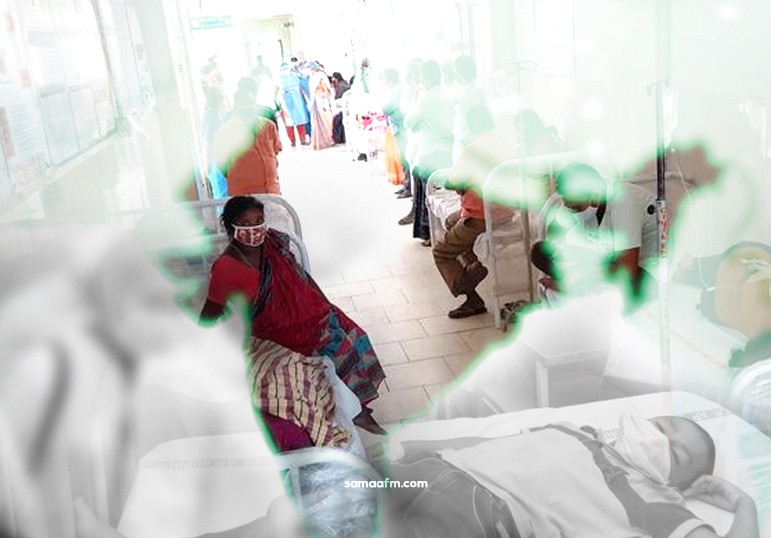
Mystery Illness Sickens More Than 300 in India
While the vaccination for COVID-19 is approved for use in UK for now. New and mysterious illnesses are coming forward to haunt people. Some of the viruses in the past were the ‘Machupo Virus’ in Africa, the ‘Chapare Virus’ and not to forget the ‘Ebola virus.’
Mysterious Viruses in the Past
During recent discoveries, researchers have been discovering mystery illnesses discovered a deadly virus that was found in Bolivia. A transmissible virus from person to the person raising serious health concerns in the medical world. The preliminary research gave evidence regarding the species of Rodent that carry the virus and can infect humans. The human-to-human transmission contains the contamination of blood, urine, saliva, or semen, causing mysterious deaths in the past including one person in 2004, a farmworker in 2019, and three medical professionals involved in the case.
The mystery illness in India
Health experts and officials are still confused and raising concerns by this mystery illness that has left over 500 people hospitalized and one person dead in the southern Indian state of Andhra Pradesh. The disease first came into light on Saturday evening in Eluru, India. Where people started collapsing and convulsing without any symptoms.

Since then, more symptoms surfaced which includes anxiety and nausea, to loss of consciousness. 546 people were reported hospitalized. Some recovered and returned home while the rest of the 148 are still in hospitals being treated.
Reportedly a 45-year old man Sridhar got hospitalized with symptoms of epilepsy and died the next morning. Initially, contaminated water was suspected. But the chief minister’s office confirmed that people who don’t use the municipal water supply have also fallen sick, and initial tests of water samples didn’t give out any harmful chemicals.
The director of public health Geeta Prasadini stated that “Nobody knows” about the spread and the symptoms, making it an unresolved mystery.
The connection to COVID-19
It was reported that despite the widespread infection of Coronavirus in Eluru, all of the patients tested negative for COVID-19. In addition, blood tests performed so far have not found evidence of other viral infections, such as dengue fever or chikungunya.
Health officials still consider this mystery a different thing than COVID-19, since some of the symptoms do resemble as COVID patients. The experts still investigating into the matter and authorities are heading to Eluru to help with further investigations regarding the case.
Read More: Is Climate Change Increasing the Risk of COVID-19?
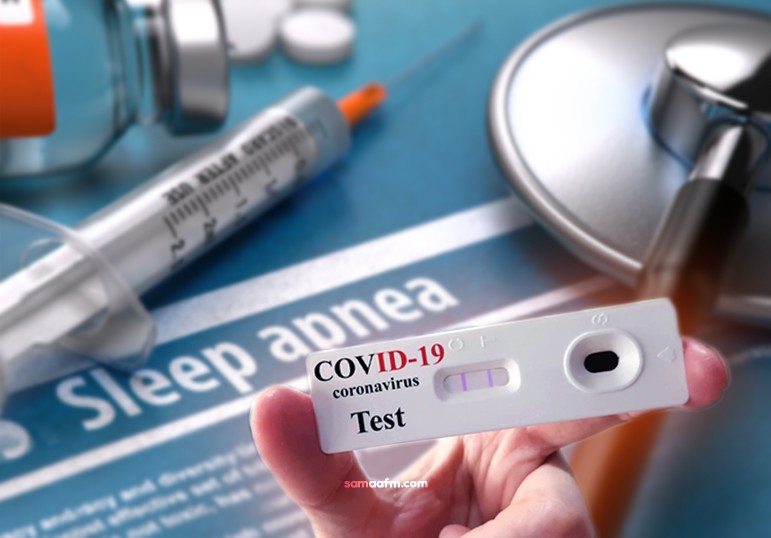
Sleep Apnea Patients Could Be At Additional Risk With COVID-19
Recent research has confirmed an indirect connection between OSA, a breathing disorder in sleep and COVID-19.
What is Sleep Apnea?
Obstructive sleep apnea OSA is a condition indicated by complete or partial blockage of the airways during sleep. This happens when the muscles there become weaker. It is commonly diagnosed in people who snore or appear to stop breathing or choke up during sleep. Those who are obese in particular are more likely to experience it. If you experience constant choking or seem to stop breathing during sleep, you should speak to your doctor about being referred to a sleep service to be checked for the condition.
COVID-19 and Sleep Apnea
A study published earlier this fall in the Journal of Clinical Sleep Medicine concluded that patients with OSA were eight times more likely to be infected with COVID-19 than others of similar age. The condition also was associated with increased risk of hospitalization and twice the risk of lung failure. Another recent study analyzed data on more than 4,500 patients with COVID-19 and found that those patients with sleep apnea had an increased rate of all-cause mortality.
The systematic review looked at eighteen studies up to June 2020 with regards to obstructive sleep apnoea and COVID-19, of these eight were mainly related to the risk of death from COVID-19 and ten were related to diagnosis, treatment and management of sleep apnoea.
Diabetes and Death Risk With Sleep Apnea
Many patients who were exposed to intensive care had obstructive sleep apnoea and in diabetic patients it may possess an increased risk that is independent of other risk factors.
The patients who had diabetes and were hospitalised for COVID-19, those being treated for obstructive sleep apnoea were at 2.8 times greater risk of dying on the seventh day after being admitted.
COVID-19 Risk with Pregnancy
Certain populations are disproportionately affected by both the conditions. Women, having symptoms like snoring and sleepiness, are often under diagnosed and less likely to be referred for evaluation and treatment. And these are with the evidence of health-related risks.
OSA in pregnancy has been associated with poor maternal health outcomes; however, data is required to develop evidence-based, pregnancy-specific guidelines for the screening and treatment of pregnant patients with Sleep Apnea.
Sleep is important for survival, and we should give more attention and thought to it as our overall health and specially the context of COVID-19.

Phir Agaya Waqt – Samaa FM Rjs Spreading Awareness
In this pandemic, Samaa FM 107.4 RJs without joining their hands, spreading a message to the masses with the hashtag #togetherwecan!
We should not lose any hope and be a positive ray of happiness for everyone. Washing hands and maintaining social distance with each other will help you and others to get rid of the ein these dark times.
Let the change happen through your deeds, through your habits, and make an evident change in society!
Stay safe, stay protected #togetherwecan




